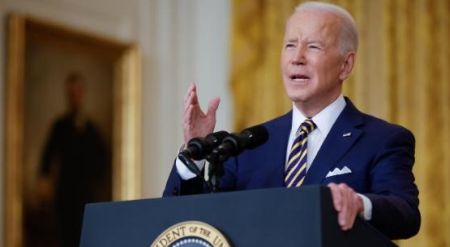If 80-to-85% of Blacks, 35% of Latinos prefer menthol cigarettes, is Biden White House proposing racist policies?
Texas Insider Report: WASHINGTON, D.C. — In April of 2021, President Joe Biden's U.S. Food & Drug Administration announced it intended to advance two Tobacco Product Standards proposals – one prohibiting menthol as a characterizing flavor in cigarettes, and another prohibiting all characterizing flavors (including menthol) in cigars. If implemented, the FDA’s enforcement of such prohibitions on menthol cigarettes and flavored cigars would potentially include entire sectors of the cigarette or any other tobacco product industry, including manufacturers, distributors, wholesalers, importers and retailers.
 According to the U.S. Centers for Disease Control (CDC,) research shows that approximately 80-to-85% of Blacks and 35% of Latinos either choose to smoke, or prefer menthol cigarettes. Subsequently, the FDA's proposals are now opening up the Biden White House to attacks of putting forward perceived racist policies, further dividing both his progressives allies and Americans in general.
According to the U.S. Centers for Disease Control (CDC,) research shows that approximately 80-to-85% of Blacks and 35% of Latinos either choose to smoke, or prefer menthol cigarettes. Subsequently, the FDA's proposals are now opening up the Biden White House to attacks of putting forward perceived racist policies, further dividing both his progressives allies and Americans in general.And that is before critics of the proposals begin to launch attacks claiming the FDA's Regulatory Ban will force the products out of the legal, regulated market, and into illegal "black markets" with no regulatory oversight or underage prevention.
Citing Racial Justice & Community Impact Issues, Partnership Strongly Condemns the FDA’s Proposed
In late March, the Law Enforcement Action Partnership (LEAP) organization released a letter, joining more than two dozen drug policy, impacted-persons, law enforcement, and legal organizations, voicing their concerns about the Food & Drug Administration’s proposed rule to “ban menthol as a characterizing flavor in cigarettes,” which has been anticipated to be published as soon as the end of the month.
The LEAP letter highlights the historical lows in U.S. smoking rates that currently exist across all demographic groups – regardless of product preference – while underscoring the need for either:
- Continued investment in the Evidence-Based Solutions
- Medically Assisted Interventions, or
- Further Public Awareness Campaigns that have led to these lows.
“FDA isn’t going to be involved in policing this new rule, they aren’t the ones tasked with enforcement, so they don’t understand how these policies lead directly to the erosion of community trust in law enforcement – which leads to an increase in crime rates, not just in the areas that need our support the most, but in surrounding areas as well,” said Lt. Diane Goldstein, current Executive Director of LEAP.
“This is a continuation of the failed enforcement-first tactics we see all the time in the ‘War on Drugs’ – interdiction, arrest, and prosecution do not work to resolve matters of public health.”
“This is a continuation of the failed enforcement-first tactics we see all the time in the ‘War on Drugs’ – interdiction, arrest, and prosecution do not work to resolve matters of public health.”
 Some Law Enforcement Officials say their attempts to enforce a menthol and flavored tobacco ban will lead to fines, arrests, and eventual incarceration for those who continue to use and sell menthol and flavored tobacco products – the majority of whom will undoubtedly be people of color.
Some Law Enforcement Officials say their attempts to enforce a menthol and flavored tobacco ban will lead to fines, arrests, and eventual incarceration for those who continue to use and sell menthol and flavored tobacco products – the majority of whom will undoubtedly be people of color.Eric Garner died in 2014 at the hands of police officers who accused him of selling illegal tobacco products. Garner’s mother, Gwendolyn Carr, soon became a vocal opponent of a proposed menthol ban in New York City that never materialized.
In addition, the economic impact of this rule will be severe – including legal businesses losing out to illegal or "blck market" sellers, employees losing jobs, and government losing billions in excise tax revenues.
According to the National Association of Convenience Stores’ "2020 State of the Industry" data, cigarettes contributed 27.79% of in-store sales, menthol makes up more than 37% of the tobacco market, while "other tobacco products" accounted for 6.9% of in-store sales.
According to NACS:
- The prohibition won't erase demand, but will shift demand to a black market.
- Illicit vendors will quickly source and begin selling foreign and counterfeit menthol cigarettes.
- Illicit vendors do not verify age and do not collect and remit taxes.
 The Tax Foundation has stated that it believes combined Federal and State Governments could stand to lose more than $6.6 billion in tax revenues during the first full year following prohibition.
The Tax Foundation has stated that it believes combined Federal and State Governments could stand to lose more than $6.6 billion in tax revenues during the first full year following prohibition.Critics of the Biden proposal also say history has shown that harm reduction – including education and counseling – are what work most effectively to reduce usage and harm in society, not prohibition. They point to studies that indicate such education and counseling programs are how youth tobacco consumption rates were driven to such generationally low rates.
Other countries, from Canada to the U.K., have tried to criminalize these same tobacco products, and it has not led to any dramatic public health improvements.
Now is not the time to double down on well-intentioned policies that will serve as a redux of prohibitionist policies that have questionable public health outcomes – but almost certain negative impacts for communities of color.
























